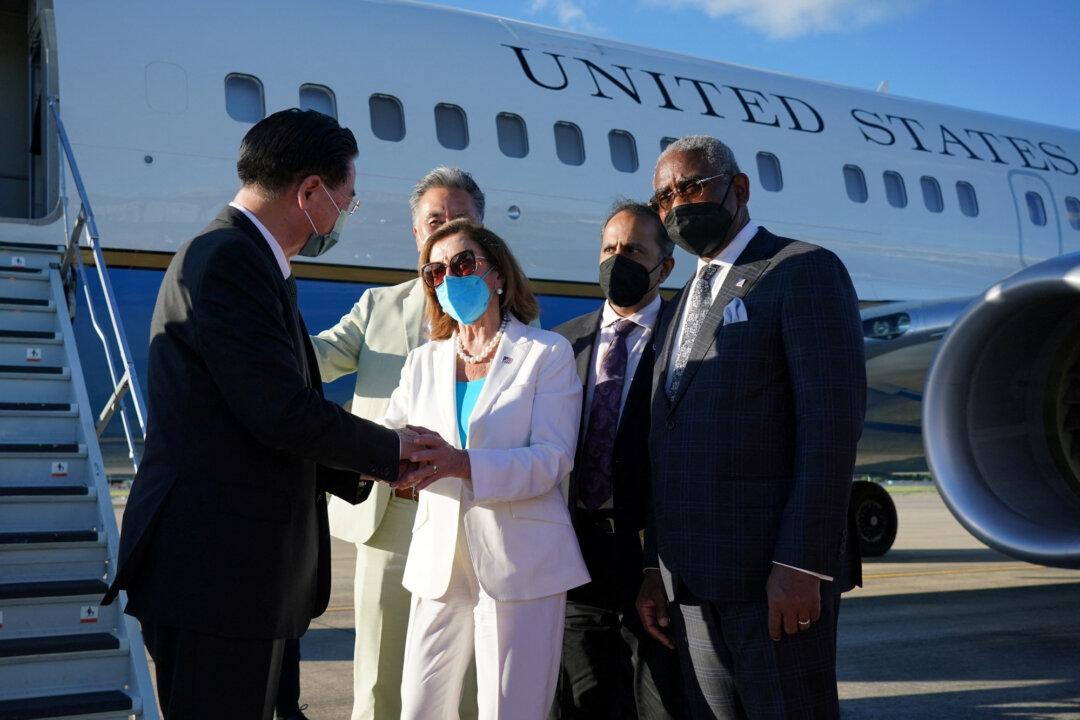TAIPEI, Taiwan—House Speaker Nancy Pelosi (D-Calif.) has left Taiwan for South Korea after spending about 19 hours on the island. Despite her brief trip, Pelosi became the most senior U.S. official to visit the self-ruled island in 25 years.
Pelosi left at around 6 p.m. local time on Aug. 3. Before she left, she met with Mark Liu, chairman of Taiwan-based semiconductor manufacturer TSMC, according to Ker Chien-ming, a senior ruling party lawmaker.





